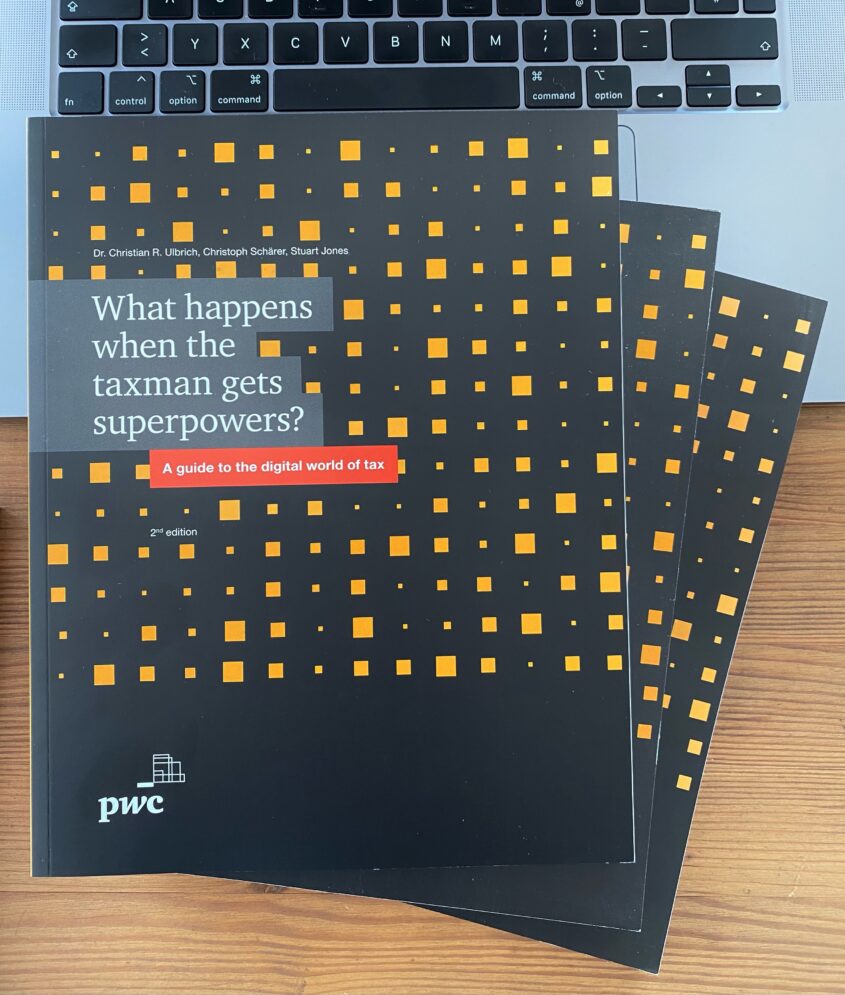Book
What happens when the taxman gets superpowers? – A guide to the digital world of tax

The world of tax is changing. Rulebooks, once certain,will no longer apply.
Tax authorities are investing heavily in new technologies that will radically transform their powers of control and oversight, and otherstakeholders will also be able to harness growing volumes of digitised data and processing power − all bringing more tax-related transparency. Simultaneously, digital technologies will transform the way corporate tax functions work.
In this guide we give readers an outlook on how things are likely to change, what the impact will be, and share with them our views on how to deal with all of this disruption.
Tax Disruption Reports
Technological advances at tax administrations, and the corresponding legal frameworks, have become more prominent as decisive factors in defining the relationship between the tax function and the tax authority. These reports intend to constantly shed light on how the tax authorities are upgrading and providing insights into how the tax authorities are changing in the digital age.
Tax Disruption Report 2021/2022
White papers / thought leaderships
Digital tax authorities
When the sleeping giant awakes…
The disruptive impact of digital authorities and the Zero Cost of Control phenomenon on business and society.
What happens when the taxman gets superpowers?
Tax authorities will be the first to embrace digitalisation on large scale. The consequences are most heavily underestimated.
Tax function of the future / Digitally transforming tax functions
Tax disruption management
Digitalisation brings two fundamental tax-related challenges to organisations. They have to deal with the digital transformation of tax authorities and, simultaneously, need to orchestrate the digital transformation of their own in-house tax function. Two new frameworks should provide assistance on this journey.
Public tax transparency
Series of three brief papers on public tax transparency
What is public tax transparency about?
In the first paper, we examine what public tax transparency is and why it should be of interest.
Is it in you interests to be publicly tax transparent?
In the second paper, we’ll explore in detail why public tax transparency is so essential, and share an insider’s view in an interview with a head of tax at a multinational organisation.
How to implement public tax transparency
In the third paper we have a close look a the content that could be disclosed the process of developing a public tax transparency report.
Tax Adviser 09/2019: Public tax transparency
In this overview article, we describe how to establish trust in the increasingly transparent world of tax, and share an insider’s view from Carl Emanuel Schillig, Group Tax Director, Zurich Insurance Group
Tax Disruption Academy
As response to the need for new digital skills in tax functions, my colleague and I have created the Tax Disruption Academy in Zurich. It gives an introduction and structure to all the different and important technology developments that fall under the umbrella term digitalisation and are also important for tax such as ETL tools, machine learning, natural language processing, optical character recognition, cyber security, advanced visualisation tools and so on.
